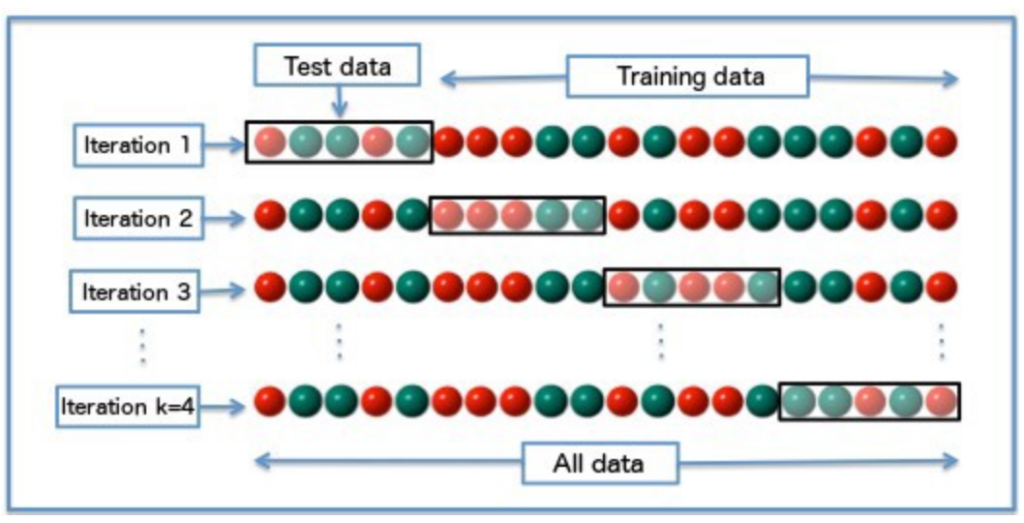Artificial intelligence (AI) (and its subset, machine learning (ML)) is indisputably a rising star on the world’s technology stage. The enormous potential of AI-powered initiatives is both astounding and a little foreboding. With a tsunami-like force, AI and ML continue to radically reshape the way we engage with and navigate the world.
AI Product Management: Why Software Product Managers Need to Understand AI and Machine Learning
AI isn’t just for tech giants, of course. Whether companies dip a toe in AI waters or take a full-on plunge, AI initiatives are taking root everywhere–from automotive and retail to education and healthcare.
Korean biotech company Seegene recently put AI technology to use in developing a test kit for the novel coronavirus. The company reports that AI shortened its development time from months to just weeks. According to CNN, this rapid deployment of much-needed test kits during a fast-moving outbreak has enabled South Korea to provide free testing for its citizens and help stem the spread of the virus.
Your product or company might not be in the thick AI initiatives or discussions right now. However, you can be sure that AI is heading your way. Product managers (PMs) of every stripe need to understand the powerful influence of AI to both stay competitive in their product role and also ensure that their companies maintain a competitive advantage.
Let’s take a closer look at what AI product management looks like. We’ll explore some of the skills and responsibilities of an AI PM, and also examine how AI is changing the product management landscape.
What is AI Product Management?
In a nutshell, AI product management focuses on using artificial intelligence, deep learning, or machine learning to enhance, improve, create, and shape products.
According to Babar Bhatti, co-founder of Dallas AI:
“A recent survey of global business leaders indicated that 70% have started AI initiatives. With the proliferation of AI into business, it is easy to see applications to B2C and B2B products and services: Google Search / Photos / Translate, Alexa, Amazon Recommendations, Stitch Fix. Nest, Tesla Autopilot. Machine Learning (and data) is the common thread among all these. Of course, there are many more products powered by ML behind the scenes.”
That being said, AI is very much a work in progress for many organizations struggling to figure it all out, get it right, and achieve business success with it.

“Your competitive advantage,” says Kevin Dewalt, author of How to Stand Up and AI Practice, “comes from applying AI to your data and innovating on your business model.”
Simply using AI or ML is a good start, but it isn’t enough, of course. Soon, just about everyone will be using AI or ML in some manner within the business. Successful AI product management is about uncovering the right data and then figuring out how to use that data to design an innovative product that delights customers and keeps them coming back for more.
Read the Essential Guide to AI Product Management.
What is an AI Product Manager?
Due to the current scarcity of AI PMs and the rapid growth of AI-related development and technology, opportunities for AI PMs are plentiful.
Often software PMs have a background in UX or marketing. An AI PM, however, most likely will have a background in data processing or statistics.
But what exactly is an AI product manager?

How AI and ML are Changing Software Product Management
As AI and ML continue to reshape the world around us radically, they are also significantly impacting and reshaping software product management as we know it.
Deepening your understanding of AI and ML can help you as a software PM. Here’s why:
- Almost every software product is starting to implement AI and ML.
- Creating a product strategy requires an understanding of possibilities.
- As with product management in general, it’s essential to understand the language of AI and ML so that you can ask the right questions.
Role of an AI Product Manager
While AI product management shares the same responsibilities and skills as traditional product management, the AI PM role expands to include the following aspects:
- Additional input: AI PMs work with data scientists and data engineers, in addition to the traditional product team and stakeholders. AI PMs need to be able to deliver AI-powered specifications to data science teams effectively.
- Problem mapping: Yes, this is also a key component of traditional product management. It’s essential, however, for AI PMs to remember to remain customer-centric in the face of AI. While the potential of AI is fascinating, an AI PM’s goal is still very much about solving a customer’s problem. AI is not a cure-all; AI PMs must keep customer focus front and center.
- Data literacy: Knowing the right questions to ask about customer data is an entirely new PM skillset. Having hands-on experience or working knowledge of data and models as an AI PM is considered to be an essential skill by AI experts.
- Communication: Like problem mapping, this is not a skill unique to an AI PM. To be successful, all product managers must be excellent communicators. Effective communication continues to be a key component of AI-focused product management. Some AI experts describe AI PMs as translators because they must bridge the language of data science with the language of product development.
- Acceptance criteria: An AI PM’s new metric to pay attention to is AI accuracy (vs. open bugs, for example).
- Explainability: Trust plays a crucial role in customer satisfaction and retention and overall business success. Explainable AI gives customers insight into AI decision-making. AI PMs are responsible for explainability and ensuring trust in a product.
- Ethics: For AI PMs, the ethical application of AI must be an ongoing consideration and deep concern. AI and ML are powerful tools; it’s up to an AI PM to remember (and sometimes remind others) that with great power comes great responsibility.
- Evangelism: PMs must evangelize more than just the product. They must also understand and promote the merits of AI adoption to help their companies stay competitive in a brave, new AI world.
Read why AI will transform product management.
Tips for AI Product Managers
- AI and ML are here to stay and will continue to transform the way we interact and engage with each other and the world at large. Rather than ducking and covering, you need to figure out where AI and ML can give your business a competitive advantage.
- AI PMs need to approach AI initiatives differently by exploring data first to identify and vet business opportunities.
- AI PMs must understand how to ask customers the right questions. And they must continue to gather data to fine-tune ongoing AI initiatives.
- Effective collaboration within cross-functional teams is what brings AI initiatives to life. Listen to each other. Learn from each other.
- AI PMs must leverage AI and ML to deepen their understanding of customers.
- Perhaps most importantly, AI PMs need to prepare for failure. Uncertainty is undoubtedly higher for AI initiatives. Above all else, keep learning, and use that knowledge to make improvements.
Takeaways
As more companies explore and embrace AI, the need for AI-competent PMs to lead the product charge will continue to grow steadily. Is your business AI-ready? Are you?



